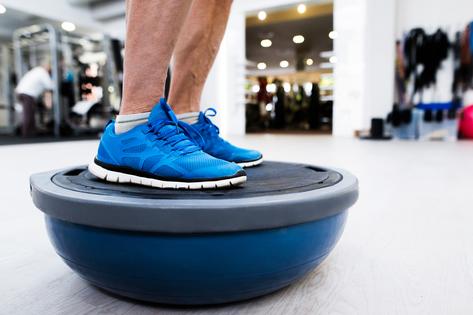55 Plus: Don't take your fitness for granted
Published in Senior Living Features
Readers know I never write about myself, but what follows is not about me. It's about my friend, Bob. He and I have been adventure buddies for many years. We would go on great hikes to places neither of us had been before; we would skate for miles along nearby paved trails, we would discover new restaurants together.
Notice that I use the past, not the present tense. Bob is fine, but he's no longer able to go on discovery adventures. Here are the details. I urge all who read this to take it as a warning.
A year and a half ago, Bob stopped working out. For some reason, he no longer wanted to trek the nearby mountain trails or poach the public concrete terrain parks when they were deserted. He wanted to go to movies or watch television. In other words, he wanted to live a solidly sedentary lifestyle. Without him, I started using my gym membership more often. Months went by, and Bob and I hardly saw much of each other. Finally, he invited me over for dinner.
I noticed right away that he didn't carry two filled plates over to the table. He carried one and set it down for me, and went back to the stove to carry over another plate, for himself. When we went downstairs to watch a TV show, Bob put out a hand to steady himself several times. He also had to balance by grabbing the railing when we later went up the stairs.
A week later, he came to my house. I have two large dogs that like to lay down in whatever room I'm in. Bob had always stepped around or over them when visiting me, but this time he wasn't so nimble. He wavered and put a hand on the couch to support himself. I began noticing that he was doing that a lot - -losing his balance and reaching out a hand to stabilize himself.
Balance is primarily made up of two factors: strength and awareness. The awareness of where your body is in space is provided by the inner ear, which the Mayo Clinic's online site describes as "canals in your inner ear contain fluid and fine, hair-like sensors that help you keep your balance." The description goes on to say that at the base of each canal there is a "patch of sensory hair cells ... that help to monitor the position of your head in relation to gravity and linear motion, such as going up and down in an elevator or moving forward and backward in a car."
Strength helps you stay upright. When your equilibrium goes wonky, your body uses strength to pull you back into a stable, balanced position. This happens constantly throughout each day, and folks are rarely conscious of it. This is why someone who has been bedridden for a while due to illness or trauma can be a little shaky when they get out of bed and start walking again.
I told this to Bob, and warned him that he needed physical activity in his life again, he had been sedentary for so long that he was shaky. But Bob was accustomed to being fit. He said, "I can always reach out and grab something for support." We got into a bit of a discussion about that comment, and I realized he would not take my warning seriously. He took his fitness for granted, never realizing that muscles have no loyalty.
I'm sure you all know how this ended. He was walking to get the mail when the inevitable happened. The fall was so hard, it broke his hip. He had to have major surgery, with a hip replacement. Months later, he is still doing rehab. Bob will never again be the adventurous athlete he once was. He may not ever again, be able to ride his mountain bike over the dirt trails we used to enjoy riding together.
I'm going to miss him.
Visit Adventure Sports Weekly at www.adventuresportsweekly.com







Comments